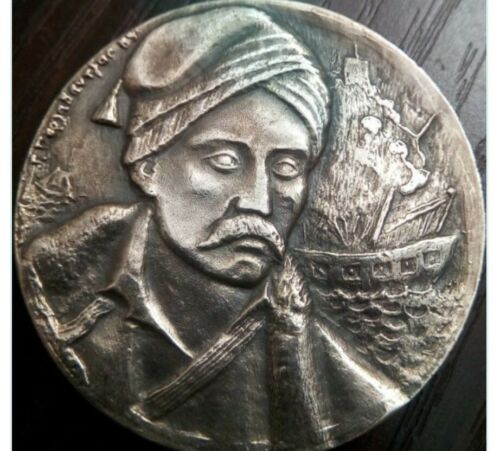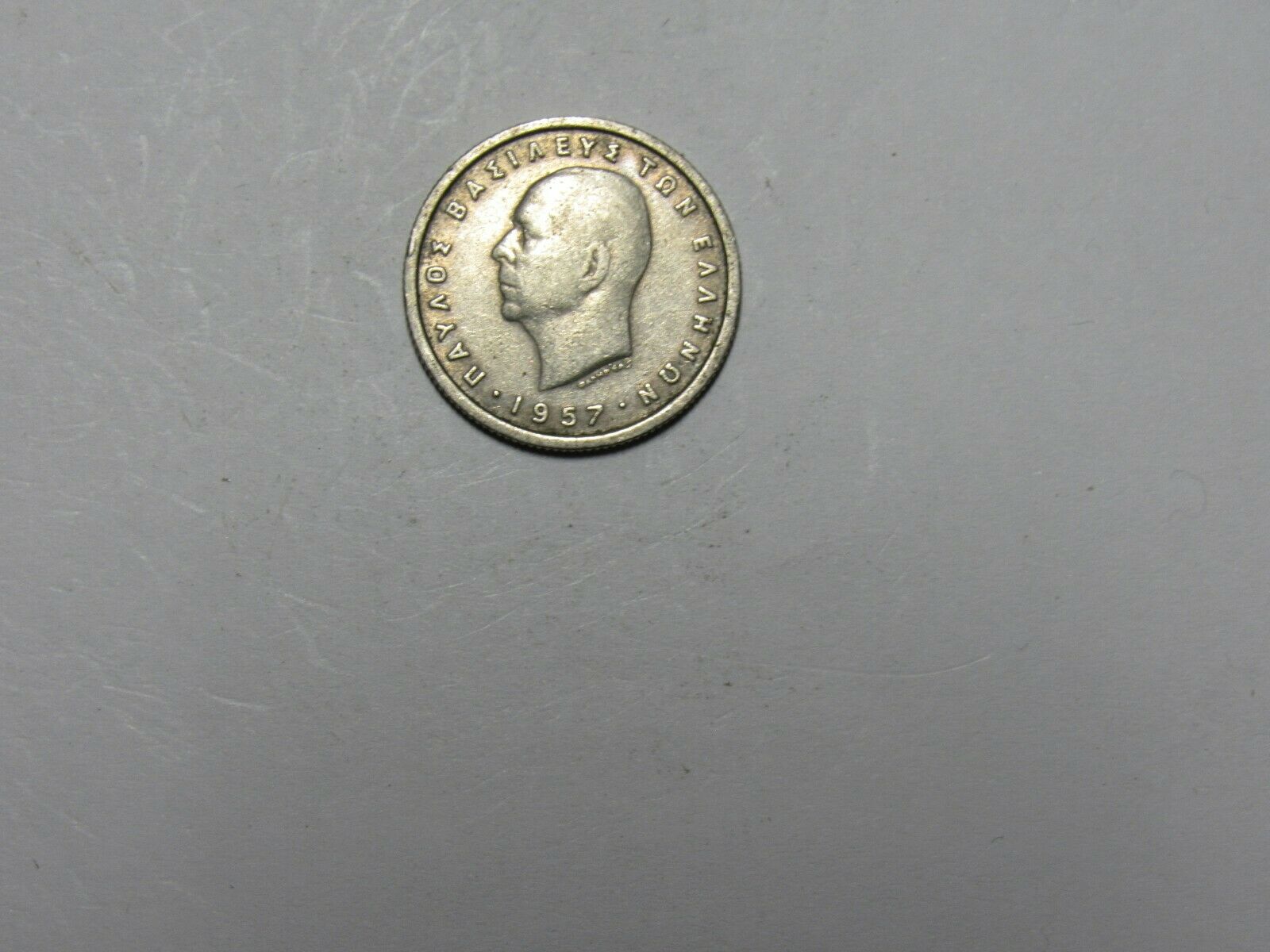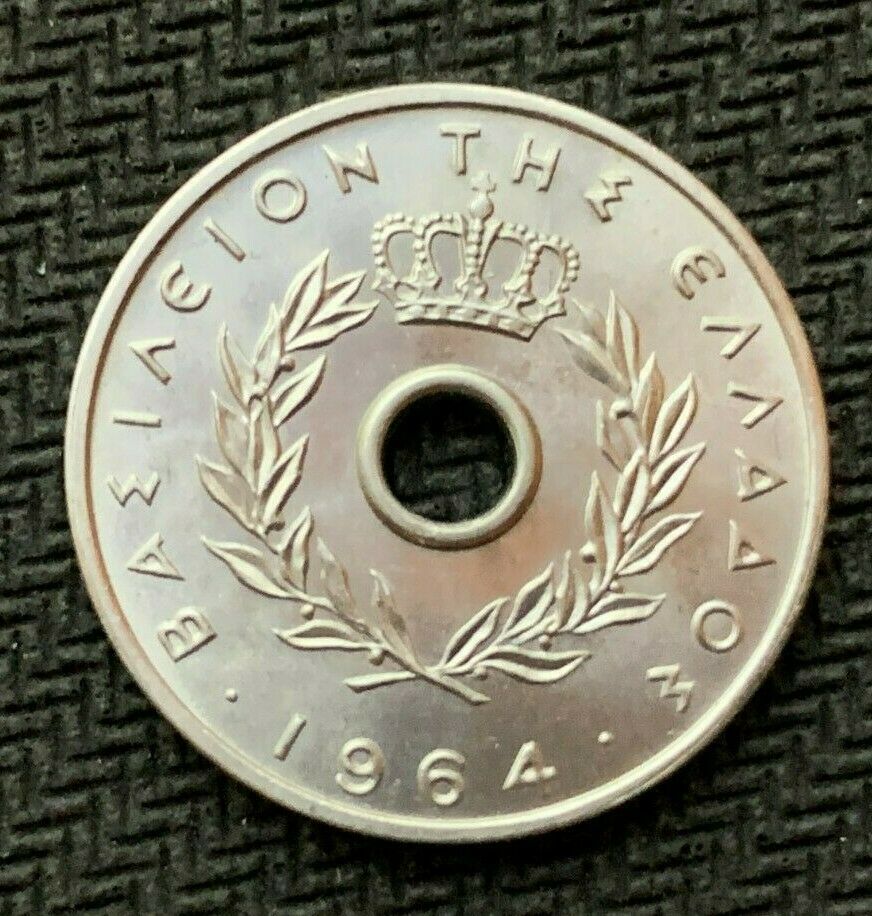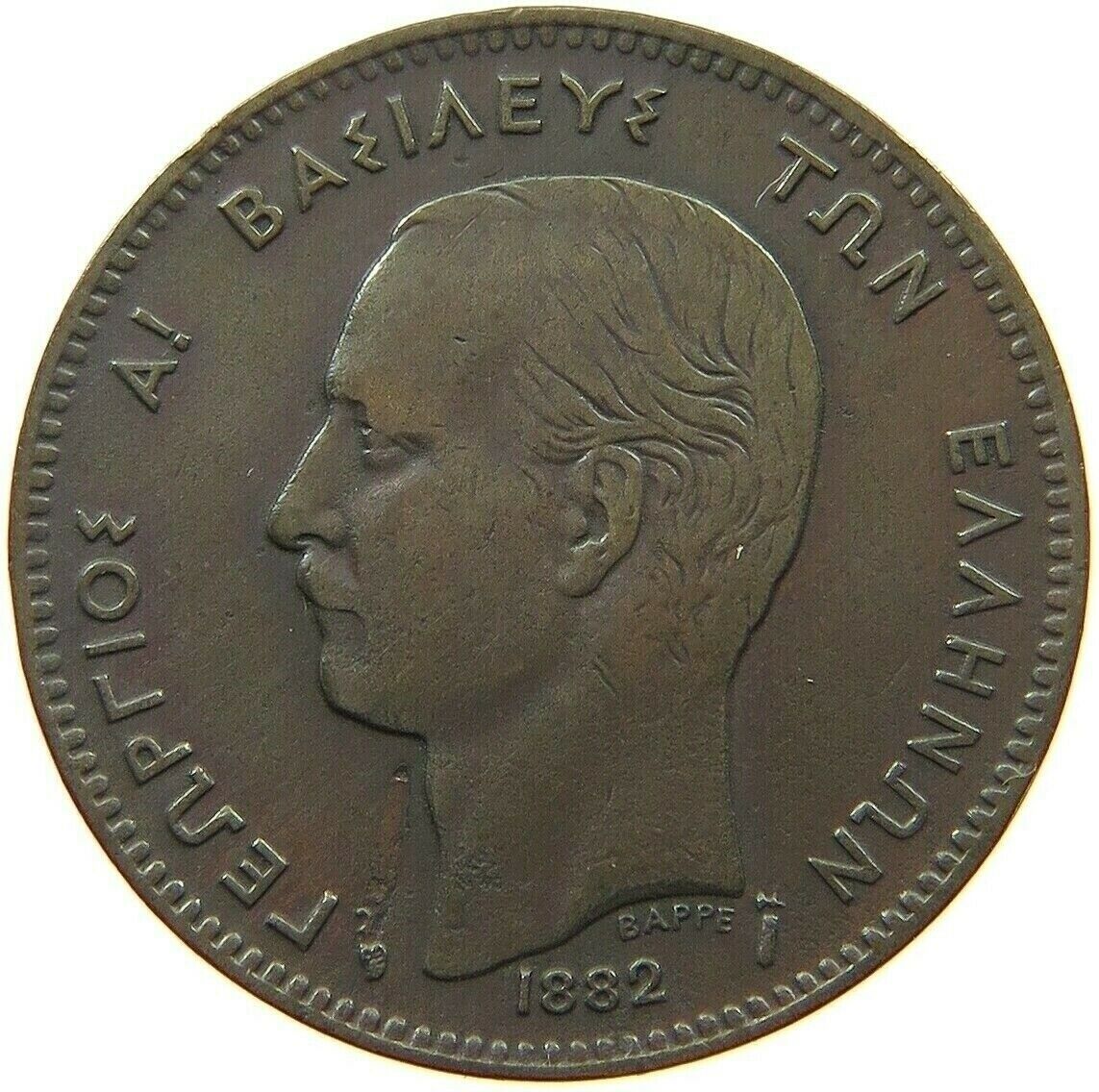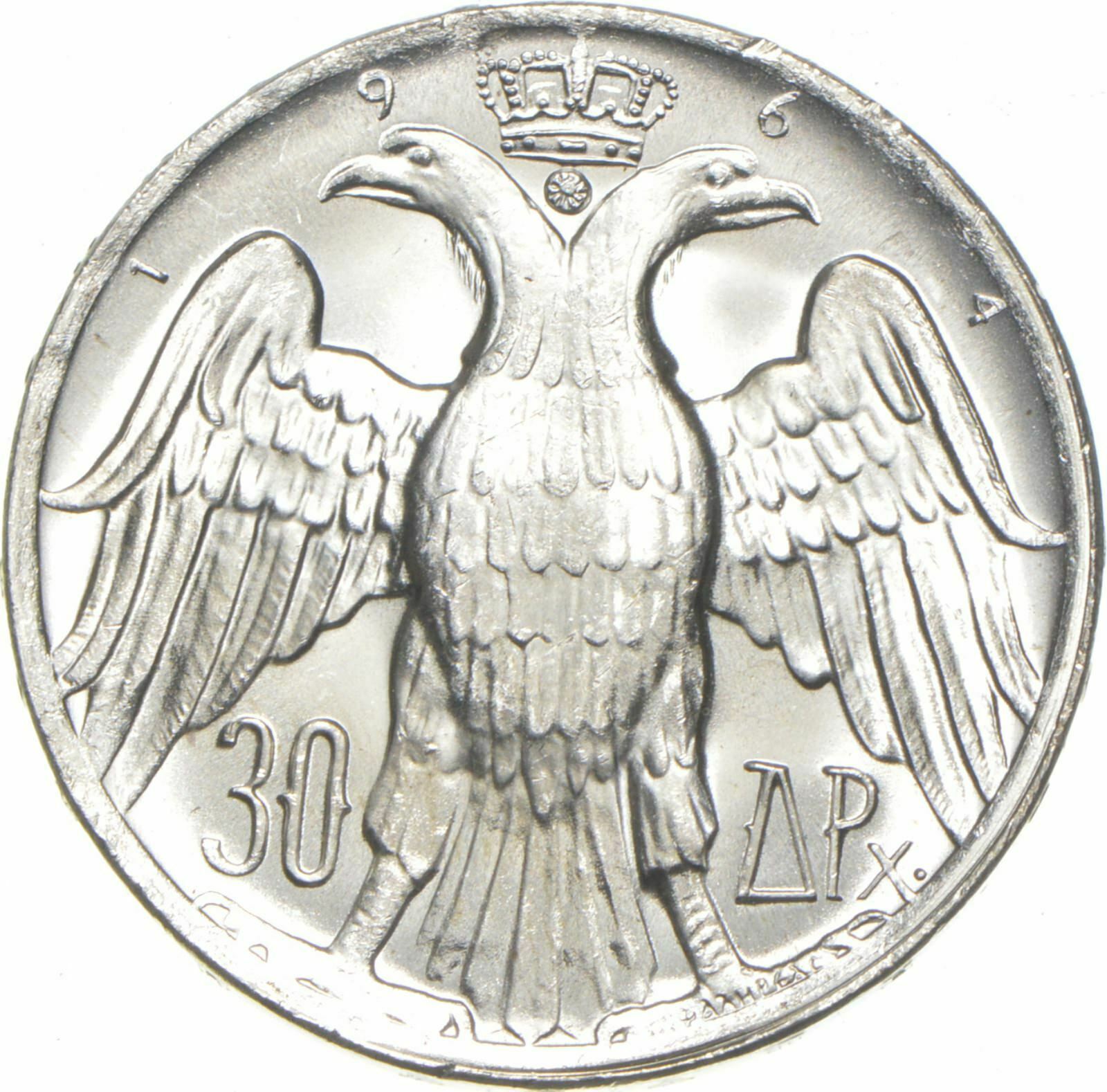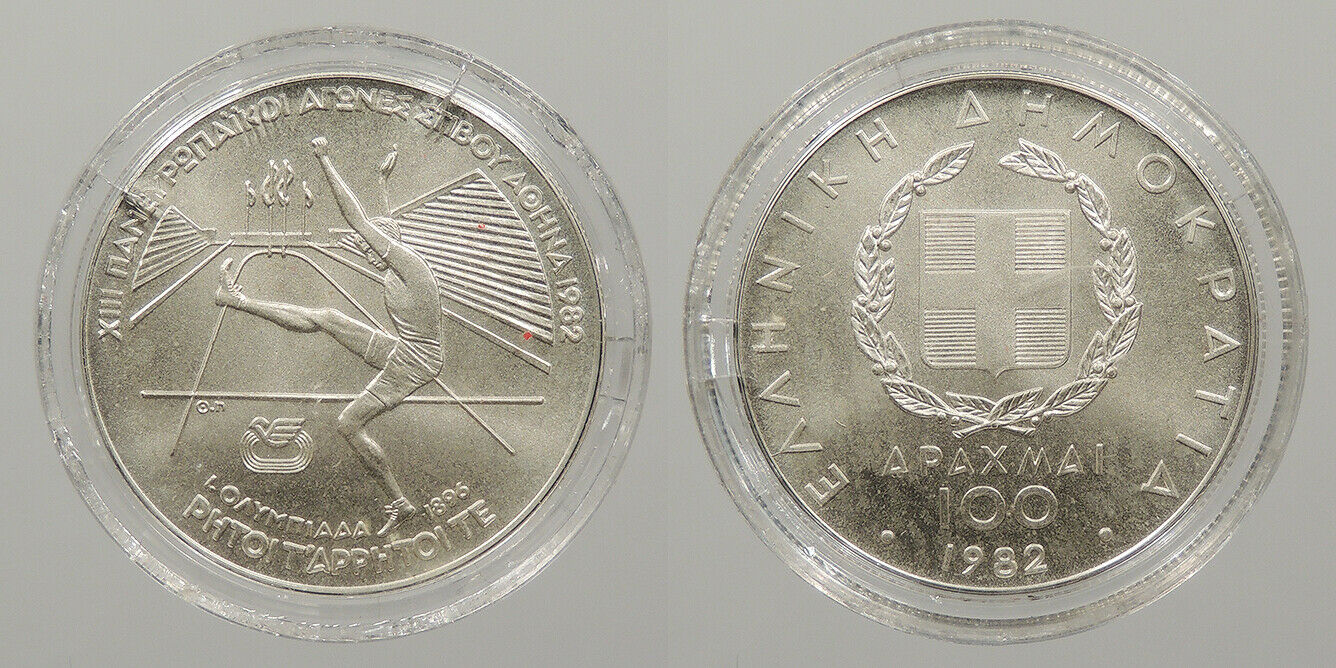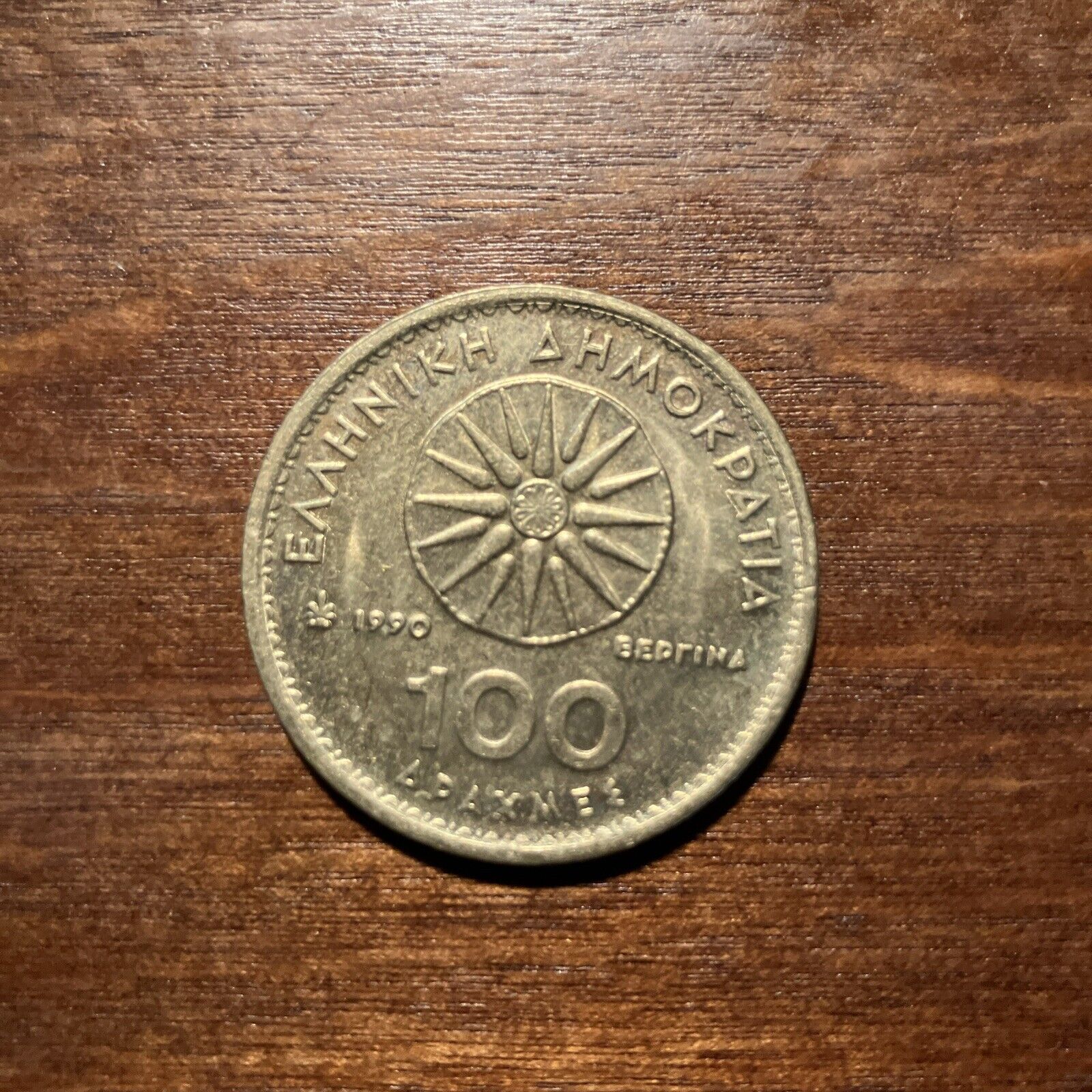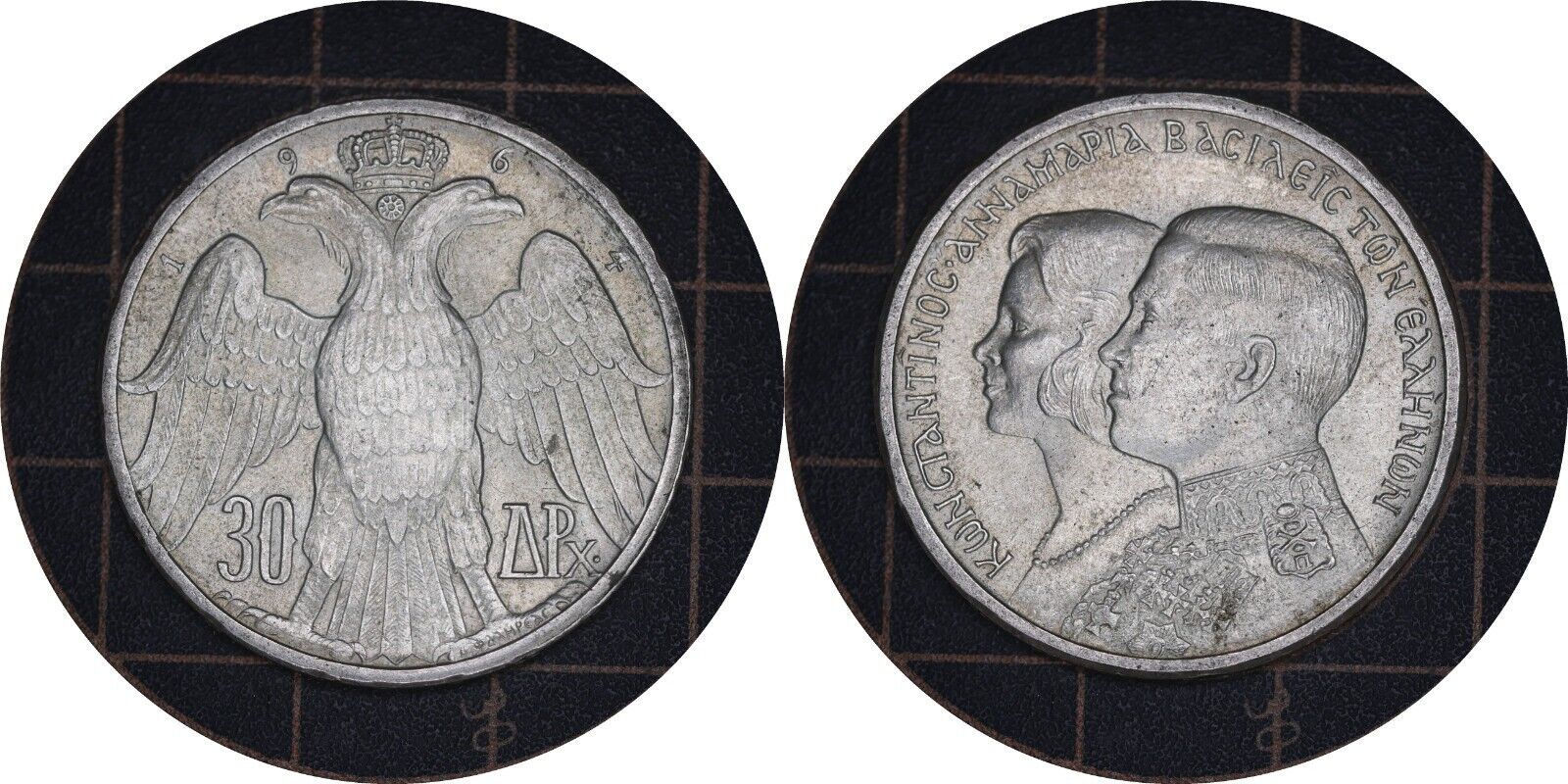-40%
KANARIS Silver 30gr RARE 🅰️ GREECE 1821 2021 🅰️ Grece Grecia Griechenland
$ 146.25
- Description
- Size Guide
Description
1821-2021.200 years from the Greek revolution.
ΓΙΑ ΕΛΛΑΔΑ ΓΙΝΕΤΑΙ ΚΑΙ ΑΝΤΙΚΑΒΟΛΗ Η ΚΑΤΑΘΕΣΗ/ΜΕΤΑΦΟΡΑ ΣΕ ΤΡΑΠΕΖΑ.
Επικοινωνήστε για λεπτομέρειες.
The item on the pictures is the one that you will receive. Look carrefully and judge for your self for the quallity and the grade.
S&h is .90 for all the world.
Registered mail with international tracking number.
BID WITH CONFIDENCE. . SELLER with 100% POSITIVE FEEDBACK.
Konstantinos Kanaris during the Greek War of Independence. Lithography by
Karl Krazeisen
, 1831.
Konstantinos Kanaris
Κωνσταντίνος Κανάρης
Konstantinos Kanaris, Prime Minister of Greece.
Prime Minister of Greece
In office
16 February 1844 – 30 March 1844
Monarch
Otto I
Preceded by
Andreas Metaxas
Succeeded by
Alexandros Mavrokordatos
In office
15 October 1848 – 12 December 1849
Monarch
Otto I
Preceded by
Georgios Kountouriotis
Succeeded by
Antonios Kriezis
Prime Minister of Greece
In office
6 March 1864 – 16 April 1864
Monarch
George I
Preceded by
Dimitrios Voulgaris
Succeeded by
Zinovios Valvis
In office
26 July 1864 – 26 February 1865
Monarch
George I
Preceded by
Zinovios Valvis
Succeeded by
Benizelos Roufos
In office
7 June 1877 – 2 September 1877
Monarch
George I
Preceded by
Alexandros Koumoundouros
Succeeded by
Alexandros Koumoundouros
Personal details
Born
c. 1790
Psara
,
Ottoman Greece
Died
2 September 1877 (aged 87)
Athens
,
Kingdom of Greece
Nationality
Greek
Signature
Military service
Allegiance
First Hellenic Republic
Kingdom of Greece
Branch/service
Hellenic Navy
Years of service
1821–1844
Rank
Admiral
Battles/wars
Greek War of Independence
Konstantinos Kanaris
, also
anglicised
as
Constantine Kanaris
or
Canaris
(
Greek
:
Κωνσταντίνος Κανάρης
; c. 1790
[1]
– 2 September 1877
[2]
), was a Greek
admiral
,
Prime Minister
, and a hero of the
Greek War of Independence
.
[3]
Early life
Konstantinos Kanaris was born and grew up on the island of
Psara
, close to the island of
Chios
, in the
Aegean
. The exact year of his birth is unknown. Official records of the
Hellenic Navy
indicate 1795, however, modern Greek historians consider 1790 or 1793 to be more probable.
[4]
He was left an
orphan
at a young age. Having to support himself, he chose to become a
seaman
like most members of his family since the beginning of the 18th century. He was subsequently hired as a boy on the
brig
of his uncle Dimitris Bourekas.
Military career
Kanaris gained his fame during the
Greek War of Independence
(1821–1829). Unlike most other prominent figures of the War, he had never been initiated into the
Filiki Eteria
(Society of Friends), which played a significant role in the uprising against the
Ottoman Empire
, primarily by secret recruitment of supporters against the Turkish rule.
[5]
By early 1821, the movement had gained enough support to launch a revolution. This seems to have inspired Kanaris, who was in
Odessa
at the time. He returned to the island of
Psara
in haste and was present when it joined the uprising on 10 April 1821.
[6]
The island formed its own fleet and the famed seamen of Psara, already known for their well-equipped ships and successful combats against
sea pirates
, proved to be highly effective in
naval warfare
. Kanaris soon distinguished himself as a
fire ship
captain.
[7]
The burning of the Turkish flagship by Kanaris
. Painting by
Nikiforos Lytras
, 1870.
At
Chios
, on the moonless night of 6–7 June 1822, forces under his command
destroyed the flagship
of the Ottoman admiral
Nasuhzade Ali Pasha
in revenge for the
Chios massacre
. The admiral was holding a
Bayram
celebration, allowing Kanaris and his men to position their fire ship without being noticed. When the flagship's powder store caught fire, all men aboard were instantly killed. The Turkish casualties comprised 2,300 men, both naval officers and common sailors, as well as Nasuhzade Ali Pasha himself.
[8]
Kanaris led another successful attack against the
Ottoman fleet
at
Tenedos
in November 1822. He was famously said to have encouraged himself by murmuring
"Konstantí, you are going to die"
every time he was approaching a Turkish warship on the fire boat he was about to detonate.
[9]
[10]
After the destruction of Psara
. Painting by
Nikolaos Gyzis
, 1898.
The Ottoman fleet
captured Psara
on 21 June 1824. A part of the population, including Kanaris, managed to flee the island, but those who didn't were either sold into
slavery
or slaughtered. After the destruction of his home island, he continued to lead attacks against Turkish forces. In August 1824, he engaged in naval combats in the
Dodecanese
.
[11]
The following year, Kanaris led the
Greek raid on Alexandria
, a daring attempt to destroy the
Egyptian fleet
with fire ships that might have been successful if the wind had not failed just after the Greek ships entered
Alexandria harbour
.
[12]
After the end of the War and the independence of Greece, Kanaris became an officer of the new
Greek Navy
, reaching the rank of
admiral
, and became a prominent
politician
.
Greek War of Independence
Clockwise:
The camp of
Georgios Karaiskakis
at
Phaliro
, the burning of an Ottoman frigate by a Greek
fire ship
, the
Battle of Navarino
and
Ibrahim Pasha of Egypt
at the
Third Siege of Missolonghi
Date
21 February 1821 – 12 September 1829
[1]
(8 years, 6 months and 3 weeks)
Location
Greece
Result
Greek independence:
Establishment of the
First Hellenic Republic
(1822–1832)
Start of the
Russo-Turkish War (1828–1829)
London Protocol
Treaty of Constantinople
Establishment of the
Kingdom of Greece
(1832)
Start of the
First Egyptian-Ottoman War
Territorial
changes
The
Peloponnese
,
Saronic Islands
,
Cyclades
,
Sporades
and
Continental Greece
ceded to the independent Greek state
Crete
ceded to
Egypt
Belligerents
Before 1822:
Filiki Eteria
Greek
Revolutionaries
Sacred Band (Ieros Lohos)
After 1822:
Hellenic Republic
Supported by:
United Kingdom
Romanian Revolutionaries
Russian Empire
Kingdom of France
Serb volunteers
Montenegrins volunteers
Ottoman Empire
Egypt
Algeria
Tripolitania
Tunis
Commanders and leaders
Alexandros Ypsilantis
(
Commander-in-Chief
)
Demetrios Ypsilantis
Ioannis Kapodistrias
Theodoros Kolokotronis
Alexandros Mavrokordatos
Germanos III
Petros Mavromichalis
Georgios Karaiskakis
†
Athanasios Diakos
Grigorios Papaflessas
†
Markos Botsaris
†
Yannis Makriyannis
Nikitas Stamatelopoulos
Emmanouel Pappas
Odysseas Androutsos
Andreas Miaoulis
Constantinos Kanaris
Laskarina Bouboulina
†
Richard Church
Vasos Mavrovouniotis
Hadži-Prodan
†
European support
:
Nicholas I
Lodewijk Heiden
Edward Codrington
Henri de Rigny
Nicolas Joseph Maison
Mahmud II
(
Commander-in-Chief
)
Nasuhzade Ali Pasha
†
Omer Vrioni
Mahmud Dramali Pasha
Kara Mehmed
Hursid Pasha
†
Husrev Pasha
Mustafa Pasha Bushatli
Reşid Mehmed Pasha
Mehmed Selim Pasha
Egyptian support
:
Muhammad Ali Pasha
Ibrahim Pasha
Ismael Gibraltar
†
The
Greek War of Independence
, also known as the
Greek Revolution
(
Greek
:
Ελληνική Επανάσταση
,
Elliniki Epanastasi
; referred to by
Greeks
in the 19th century as simply the Αγώνας,
Agonas
, "
Struggle
";
Ottoman
: يونان عصياني
Yunan İsyanı
, "
Greek Uprising
"), was a successful
war of independence
waged by Greek revolutionaries against the
Ottoman Empire
between 1821 and 1830. The Greeks were later assisted by Great Britain,
France
and Russia, while the Ottomans were aided by their North African vassals, particularly the
eyalet
of
Egypt
. The war led to the formation of
modern Greece
. The revolution is celebrated by Greeks around the world as
independence day
on 25 March.
Greece came under Ottoman rule in the 15th century, in the decades before and after the
fall of Constantinople
.
[2]
During the following centuries, there were sporadic but unsuccessful
Greek uprisings
against Ottoman rule.
[3]
In 1814, a secret organization called
Filiki Eteria
(Society of Friends) was founded with the aim of liberating Greece, encouraged by the revolutionary fervor gripping Europe in that period. The Filiki Eteria planned to launch revolts in the
Peloponnese
, the
Danubian Principalities
, and
Constantinople
itself. The insurrection was planned for 25 March 1821 (on the Julian Calendar), the Orthodox Christian
Feast of the Annunciation
. However, the plans of Filiki Eteria were discovered by the Ottoman authorities, forcing the revolution to start earlier. The first revolt began on 6 March/21 February 1821 in the
Danubian Principalities
, but it was soon put down by the Ottomans. The events in the north urged the Greeks in the Peloponnese (
Morea
) into action and on 17 March 1821, the
Maniots
were first to declare war. In September 1821, the Greeks under the leadership of
Theodoros Kolokotronis
captured
Tripolitsa
. Revolts in
Crete
,
Macedonia
, and
Central Greece
broke out, but were eventually suppressed. Meanwhile, makeshift Greek fleets achieved success against the
Ottoman navy
in the
Aegean Sea
and prevented Ottoman reinforcements from arriving by sea.
Tensions soon developed among different Greek factions, leading to two consecutive civil wars. The
Ottoman Sultan
called in his vassal
Muhammad Ali of Egypt
, who agreed to send his son
Ibrahim Pasha
to Greece with an army to suppress the revolt in return for territorial gains. Ibrahim landed in the Peloponnese in February 1825 and brought most of the peninsula under Egyptian control by the end of that year. The town of
Missolonghi
fell in April 1826 after a
year-long siege
by the Turks. Despite a
failed invasion of Mani
, Athens also fell and the revolution looked all but lost.
At that point, the three Great Powers—Russia, Britain and France—decided to intervene, sending their naval squadrons to Greece in 1827. Following news that the combined Ottoman–Egyptian fleet was going to attack the island of
Hydra
, the allied European fleets intercepted the Ottoman navy at
Navarino
. After a tense week-long standoff, the
Battle of Navarino
led to the destruction of the Ottoman–Egyptian fleet and turned the tide in favor of the revolutionaries. In 1828 the Egyptian army withdrew under pressure of a
French expeditionary force
. The Ottoman garrisons in the Peloponnese surrendered, and the Greek revolutionaries proceeded to retake central Greece. Russia invaded the Ottoman Empire and forced it to accept Greek autonomy in the
Treaty of Adrianople (1829)
. After nine years of war, Greece was finally recognized as an independent state under the
London Protocol
of February 1830. Further negotiations in 1832 led to the
London Conference
and the
Treaty of Constantinople
; these defined the final borders of the new state and established
Prince Otto
of Bavaria as the first king of Greece.
